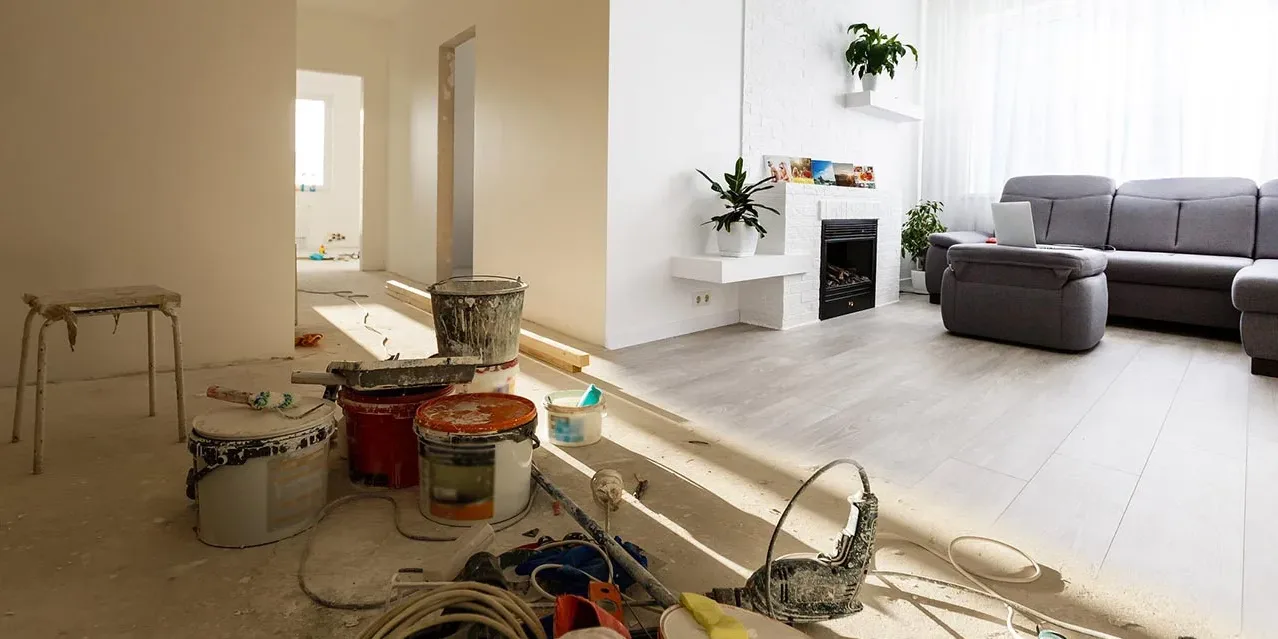Introduction How to Renovate Your Home
Embarking on a home renovation project can be both exciting and daunting. Whether you’re revamping your living space for personal enjoyment or aiming to increase your property’s value, proper planning and execution are key. In this detailed guide, we’ll explore step-by-step how to renovate your home like a pro, covering everything from initial planning to the finishing touches. By the end, you’ll be equipped with the knowledge and confidence to tackle your renovation project head-on.
How to Renovate Your Home: Planning Phase
Renovating your home begins long before the first hammer swings. Proper planning is essential to ensure a smooth and successful renovation process.
Assess Your Needs and Set Goals
Before diving into renovations, take time to evaluate your needs and priorities. Ask yourself what improvements are essential and what you hope to achieve with the renovation. Whether it’s updating outdated fixtures, expanding living space, or enhancing energy efficiency, clearly defining your goals will guide the entire process.
Create a Realistic Budget
One of the most critical aspects of any renovation project is establishing a realistic budget. Consider factors such as materials, labor costs, permits, and unforeseen expenses. It’s wise to allocate a contingency fund for unexpected surprises that may arise during the renovation process.
Research and Gather Inspiration
Browse home improvement magazines, websites, and social media platforms to gather inspiration for your renovation project. Create a vision board or digital folder to compile ideas, color schemes, and design elements that resonate with your aesthetic preferences.
Hire Professional Contractors or DIY?
Decide whether you’ll tackle the renovation yourself or hire professional contractors. While DIY projects can save money, complex renovations may require the expertise of licensed professionals. Obtain multiple quotes, conduct thorough research, and check references before selecting contractors.
Preparing Your Home for Renovation
Before the renovation work begins, it’s essential to prepare your home to minimize disruptions and ensure a safe working environment.
Clear Out Clutter and Furniture
Remove furniture, decorations, and other belongings from the renovation area to prevent damage and facilitate easier access for contractors. Consider renting a storage unit to temporarily store items during the renovation process.
Protect Floors and Surfaces
Cover floors and surfaces with protective materials such as drop cloths or plastic sheeting to prevent damage from dust, debris, and heavy foot traffic. Invest in temporary floor protection products to safeguard hardwood, tile, or carpeted floors.
Communicate with Neighbors
If your renovation project involves noisy or disruptive work, such as demolition or construction, consider informing your neighbors in advance. Open communication can help mitigate potential conflicts and ensure a smoother renovation experience for everyone involved.
Secure Necessary Permits
Depending on the scope of your renovation project, you may need to obtain permits from local authorities. Research permit requirements and ensure all necessary approvals are in place before commencing work to avoid costly fines or delays.
Executing Your Home Renovation
With careful planning and preparation complete, it’s time to roll up your sleeves and begin the renovation work.
Start with Demolition
If your renovation involves removing existing structures or fixtures, start with demolition. Exercise caution and follow proper safety protocols to avoid accidents or injuries. Rent dumpsters or waste bins to dispose of debris responsibly.
Focus on Structural Changes First
Address any structural changes or repairs before proceeding with cosmetic upgrades. This includes tasks such as framing, plumbing, electrical work, and HVAC installations. Hiring licensed professionals for these critical tasks is highly recommended.
Choose Quality Materials and Finishes
When selecting materials and finishes for your renovation, prioritize quality and durability. Opt for materials that not only enhance aesthetics but also offer longevity and functionality. Consider factors such as maintenance requirements, eco-friendliness, and compatibility with your home’s architectural style.
Embrace Sustainable Practices
Incorporate sustainable and eco-friendly practices into your renovation wherever possible. Choose energy-efficient appliances, low-VOC paints, and sustainable building materials to reduce environmental impact and lower long-term operating costs.
Pay Attention to Detail
The success of a renovation often lies in the details. Pay close attention to finishing touches such as trim work, hardware, and lighting fixtures. These small details can elevate the overall look and feel of your space and showcase your attention to craftsmanship.
How to Renovate Your Home FAQs
How long does a home renovation typically take? Home renovation timelines vary depending on the scope of the project. Minor renovations may be completed in a few weeks, while major overhauls can take several months or longer to finish.
Do I need to hire an architect for my home renovation? The need for an architect depends on the complexity of your renovation project. While architects can provide valuable design expertise, smaller-scale renovations may not require their services.
Can I live in my home during the renovation process? Living in your home during renovation is possible, but it can be challenging, especially during noisy or disruptive phases. Consider alternative living arrangements if feasible, such as staying with family or renting temporary accommodations.
What permits do I need for a home renovation? Permit requirements vary by location and the scope of the renovation. Common permits include building permits, electrical permits, plumbing permits, and zoning permits. Check with your local building department for specific requirements.
How can I stick to my renovation budget? To stay within budget, prioritize essential renovations, research cost-effective materials and finishes, and be prepared for unexpected expenses. Regularly review your budget and adjust as needed throughout the renovation process.
What should I do if I encounter unexpected issues during renovation? Unexpected issues are common in renovation projects. Maintain open communication with your contractor, be flexible with timelines and budgets, and trust the expertise of professionals to resolve challenges effectively.
Conclusion How to Renovate Your Home
Renovating your home can be a rewarding journey that transforms your living space and enhances your quality of life. By following the steps outlined in this guide and leveraging expert tips, you can navigate the renovation process with confidence and achieve stunning results. Remember to plan meticulously, prioritize quality, and embrace creativity to bring your vision to life.






